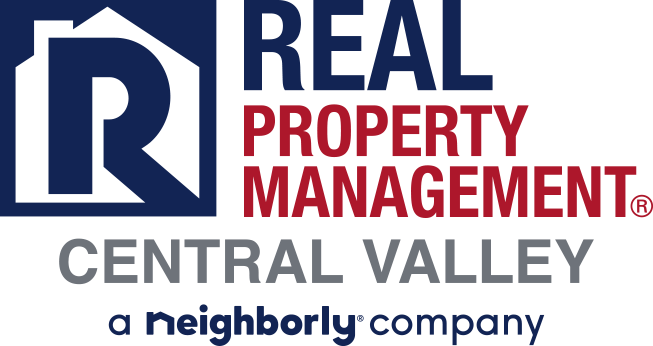Should landlords form an LLC for rental property?

Tax time is almost here and as a real estate investor you may be thinking about starting an Limited Liability Corporation (LLC).
In today’s article we will provide you with a complete breakdown if starting an LLC is a smart move for you to start an LLC and what you can expect from this process.
Landlord LLC Cost
If you’re a do-it-yourselfer landlord, you’ll be visiting a site like RocketLawyer.com to create your LLC. The base cost is $79 plus any applicable state filing fees. The state filing fees range from less than $100 to over $200. Check your state fees by selecting the state in the drop-down box on the pricing page.
Of course, you’ll get hit with all kinds of upsell opportunities to drive the price higher and higher.
Personally, I went for the higher package to have everything handled at once and in one place so paying the extra for the Tax ID and Registered Agent made sense for me at the time. Overall, my cost was $690 to file for an LLC in New York back in 2007, and from what I can see, the costs are about the same today.
Estimated Cost to DIY – $400 to $800 depending on state fees and convenience add-ons
Now, I recently had my attorney set up a new LLC in 2014–not that I had a bad experience going through LegalZoom, but because he was already representing me in a real estate transaction.
My total costs using him was $1500, with the most notable difference being I did nothing but sign a document. It cost me no time or energy.
Estimated Cost to use an Attorney – $1000 to $1500, based on my experience.
I’ve also consulted with and approve of the work Mark Kohler does (see video below) and he sets LLCs up for landlords all over the U.S.
Legal Liability and LLCs
When landlords think of legal liability, we all think about getting sued by a tenant. So I’ll begin the conversation about liability by stating that an LLC structure is not completely rock solid when it comes to limiting personal liability.
If you were personally responsible for a neglected job (snow removal, pool maintenance, etc.) that resulted in a tenant injury, you’d likely be liable as an individual. Also, in situations where a law was broken or you were involved in deceptive business practices, you’d be personally responsible.
Another legal liability to be aware of is not keeping the finances separate. If the rental is not capitalized enough to cover expenses and you’re paying out of a personal account, versus the business bank account, a plaintiff in a lawsuit could make the case that the investment was never truly separate. So keep the finances completely separate between the LLC and anything from your personal life. This means no trips to the mall for new shoes with the LLC debit card.
Set Up an LLC Bank Account
Setting up a bank account for your LLC is fairly easy once you have all the documentation from the state and a Tax ID number. This is a must to keep the business transactions clearly separated and makes accounting a lot cleaner come tax time.
Can you transfer a mortgage to an LLC?
My final thought on the banking is to beware of your bank’s (or mortgage holder’s) policy on transferring ownership of the property to an LLC. If you purchased the property personally, then transfer it to an LLC, you may be enacting the banks due on sale clause.
Since most lenders will look at the transfer from personal to LLC as a sale, according to the terms of the mortgage, they can accelerate the loan and cause you to have to pay the balance or refinance.
This can turn into a mess if you lose a low-interest rate on the refinance, or even worse don’t qualify for a new mortgage at the time. Be sure to get answers from your lender before making the switch to an LLC.
Landlord LLC vs Umbrella Insurance
All landlords should have a separate landlord insurance policy for their rentals. This is important enough to repeat – ALL LANDLORDS SHOULD HAVE A SEPARATE LANDLORD INSURANCE POLICY!
An LLC is used to create a barrier between you and your assets. Its sole purpose is to reduce your liability as a real estate investor.
An umbrella insurance policy (sometimes called “excess liability) will cover you up to a certain amount for large lawsuits filed against you.
Events such as the following could be covered under an umbrella policy.
- A guest trips and falls on a bad stair
- A third party sues you (neighborhood kid slips on your sidewalk)
- Landlord negligence that results in theft such as not changing out locks
Hypothetical Scenario
Let’s use a real-life example to break down what would happen to a landlord based on their protections.
A jury in 2017 awarded a construction worker in Arizona $1,600,000 for blindness caused to his eye while on the job.
Now let’s say you have an elevated porch on the rental property and it collapses while your tenant was having a BBQ.
The aftermath results in one guest being permanently blinded by the accident.
The tenant’s guest successfully sues for medical bills along with pain and suffering. The courts award them $1,600,000 in the verdict.
If the landlord has no insurance and does not have an LLC set up they will pay this out of pocket.
If the landlord has an umbrella policy but no LLC they will be on the hook for whatever the umbrella policy does not cover. A common umbrella policy is for $1 million in protection. In this case, the landlord is responsible for $600,000 still.
Without an LLC the injured person will go after the landlord’s personal home, rental properties, autos, and savings to recoup the additional $600,000. They can even garnish future wages up to 25%.
Now, let’s say the landlord had the umbrella policy AND an LLC set up.
The LLC acts as a liability barrier between the landlord and the rental property. The injured party could go after the rental property but the landlord’s personal assets will be safeguarded.
An additional line of defense is to require your tenant to carry renters insurance. In the scenario above the renters insurance can help pay towards medical bills and is very affordable at around $10 a month.
Get Central Valley Property Management Here
Tired of managing your portfolio of rental properties yourself? Contact RPM Central Valley today by calling us at (209) 572-2222 or click here to connect with us online.
